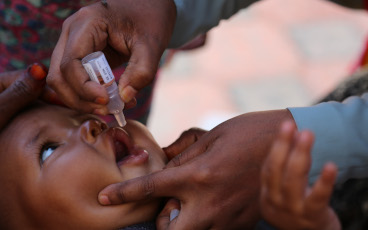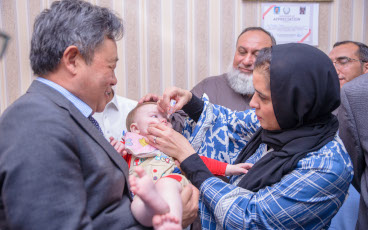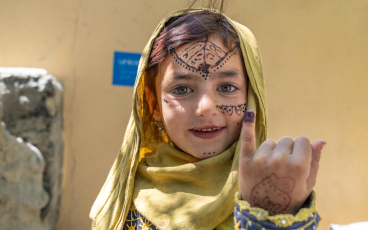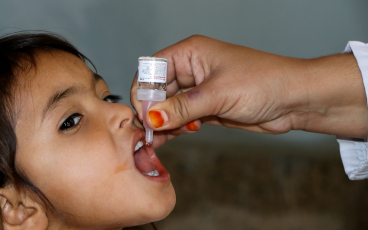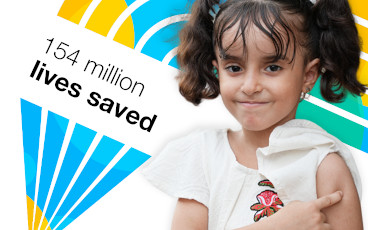Polio infrastructure helping stop malaria in Nigeria
Community health workers responding to humanitarian crisis in Nigeria are helping to stop polio and malaria hand in hand.
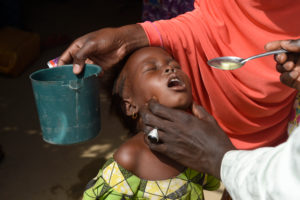
The people working to end polio are helping broader humanitarian response efforts in north-eastern Nigeria. With malaria currently claiming more lives than all other diseases put together, a campaign was launched in October to reduce the malaria burden among young children in Borno state by delivering antimalarial medicines. At the same time, community health workers protected children against polio.
“The current campaign marks the first time that antimalarial medicines have been delivered on a mass scale alongside the polio vaccine in an emergency humanitarian setting,” said Dr Pedro Alonso, Director of the Global Malaria Programme, in an interview with WHO on the campaign and the broader humanitarian situation in Borno. “This integrated campaign with WHO’s polio and health emergency teams is an example of unprecedented collaboration to tackle the leading cause of death in a displaced population.”
The humanitarian crisis in north-eastern Nigeria has resulted in a surge in internally displaced persons, with limited access to medical care, leaving millions at risk of life-threatening diseases. In August 2016, four cases of wild poliovirus type 1 were detected in Borno; the outbreak response has been carried out hand in hand with broader humanitarian efforts to meet the health needs of vulnerable populations.
WHO’s well developed network of polio vaccinators, with their years of experience in reaching children with polio vaccines, is making a real difference to the drive against malaria. The polio programme in Nigeria has a vast infrastructure and hundreds of staff on the ground and they are coordinating efforts to make sure that families affected by the crisis have access to other healthcare services.
As a result, the campaigns have reached 1.2 million children with polio vaccines and antimalarial medicines, as shown through a WHO photo story. “I think we will imminently be able to show significant impact,” said Dr Matshidiso Moeti, Regional Director for Africa, reflecting on the encouraging results of the joint campaign.
Read more:
Photo story: Integrated campaign tackles malaria and polio in north-eastern Nigeria



